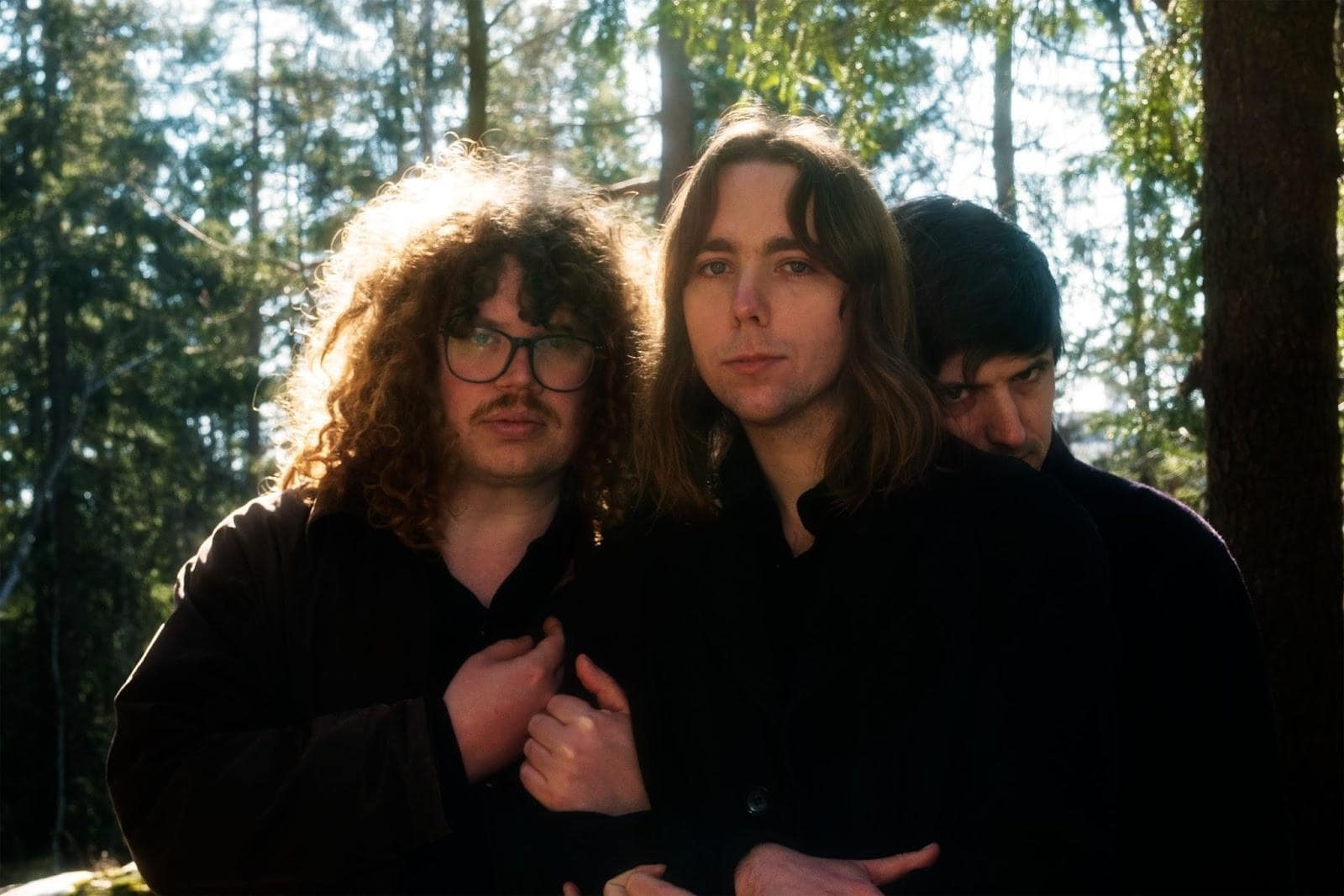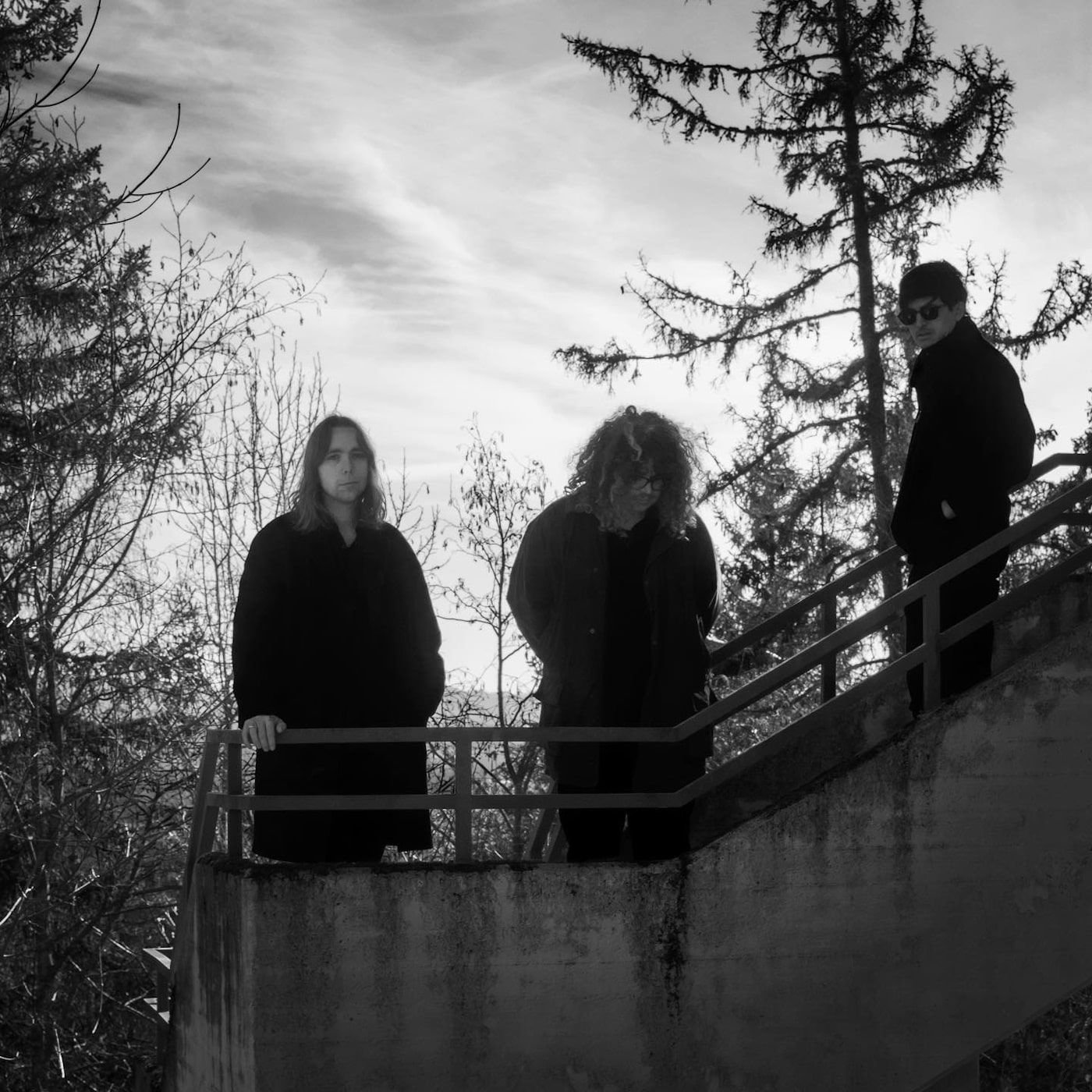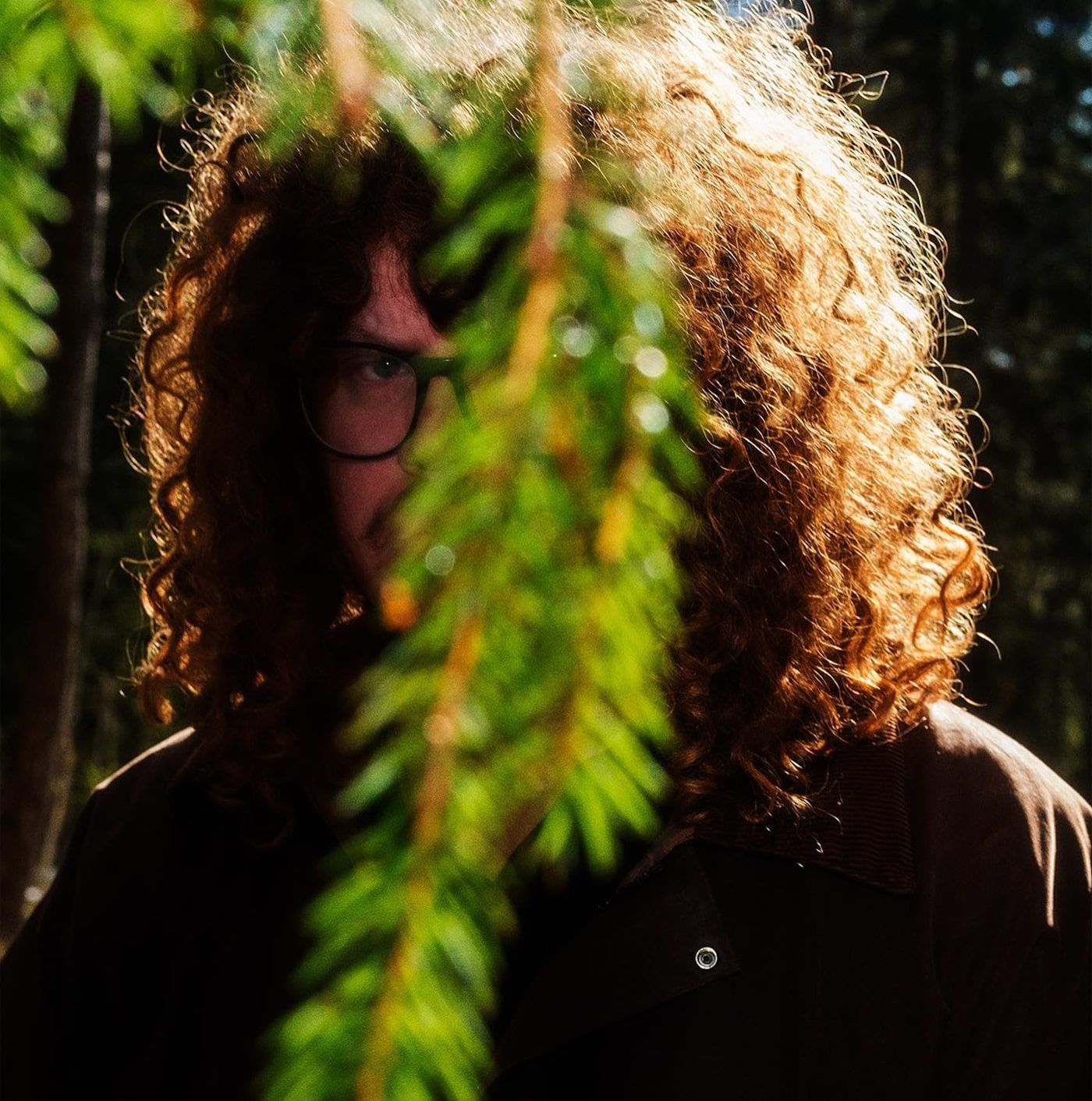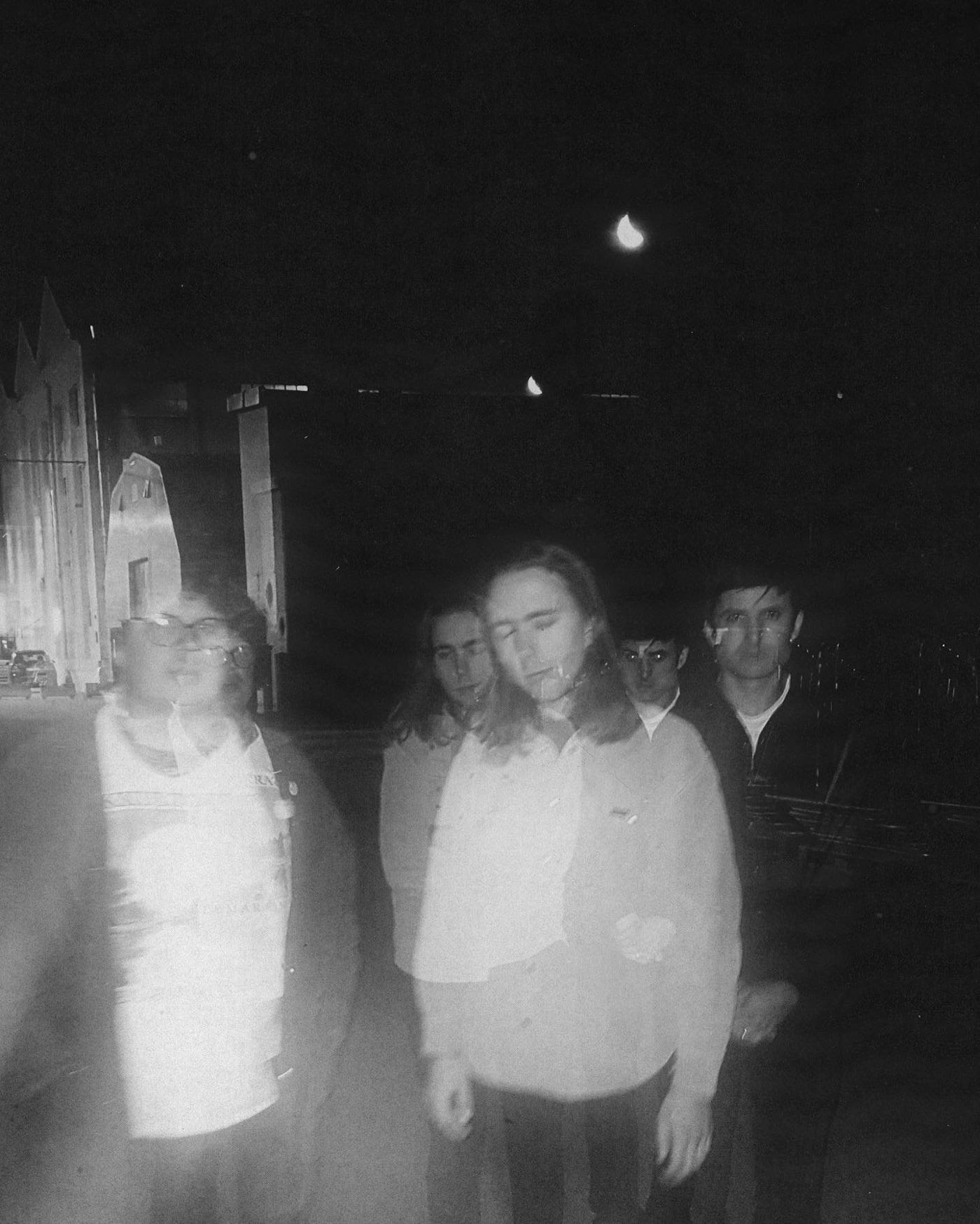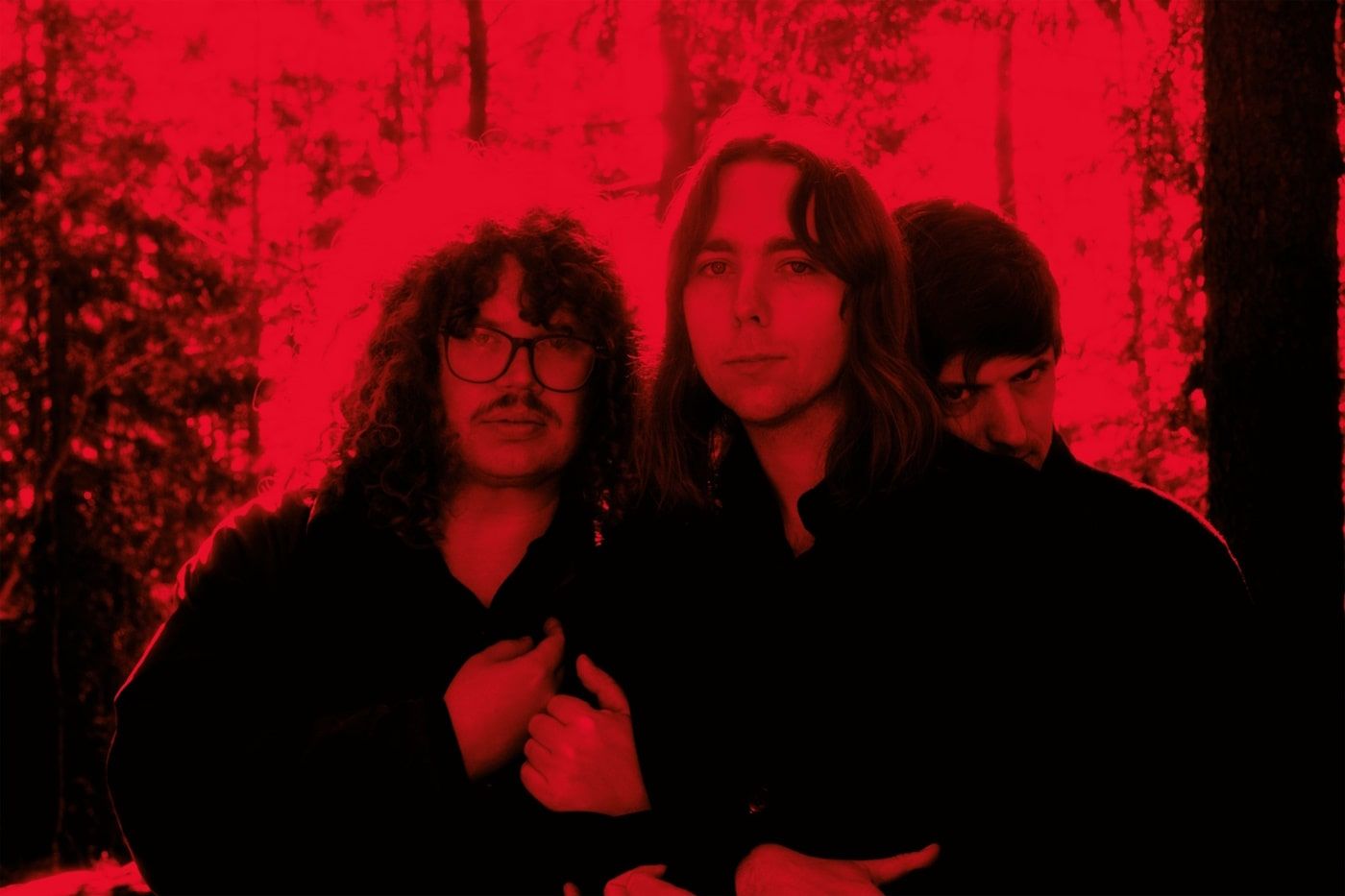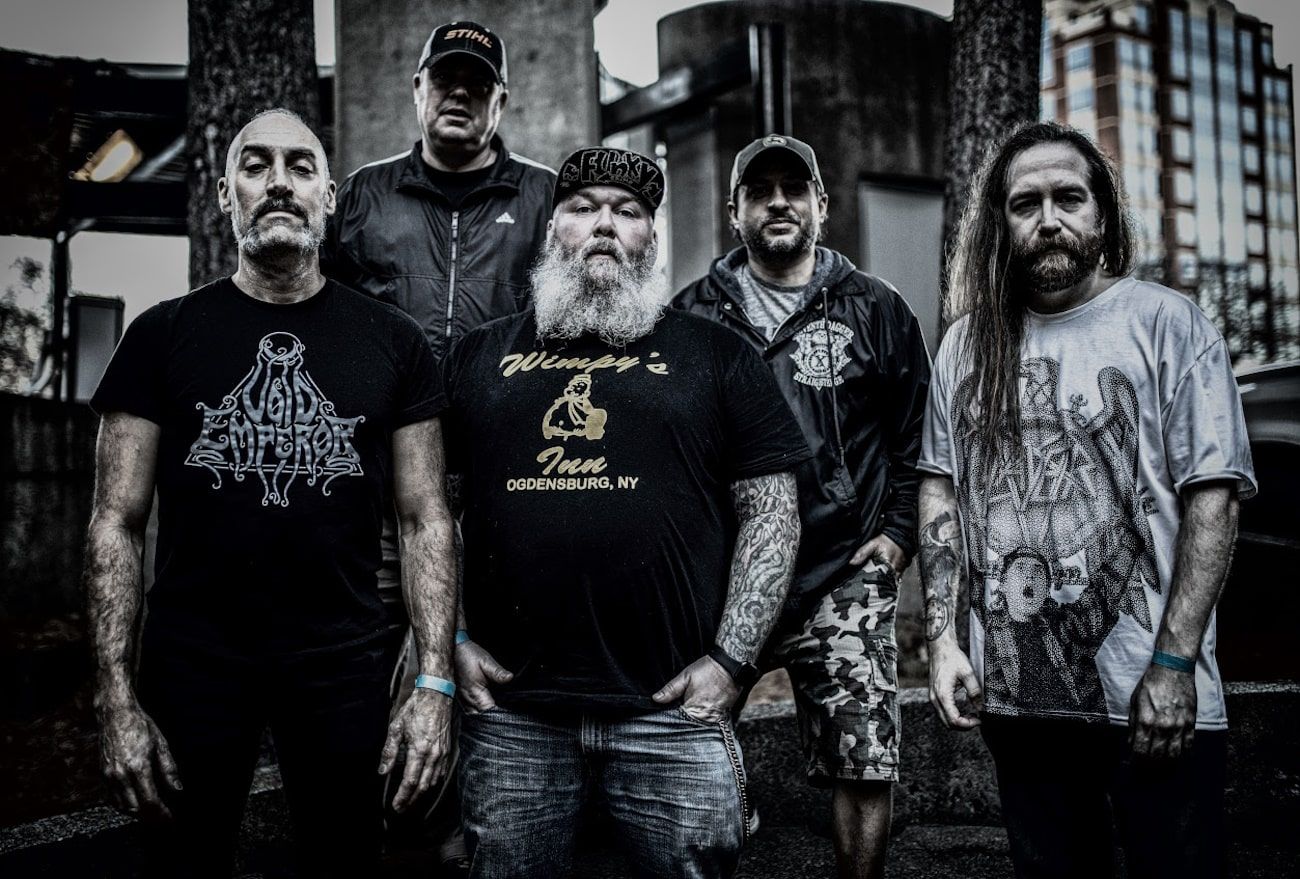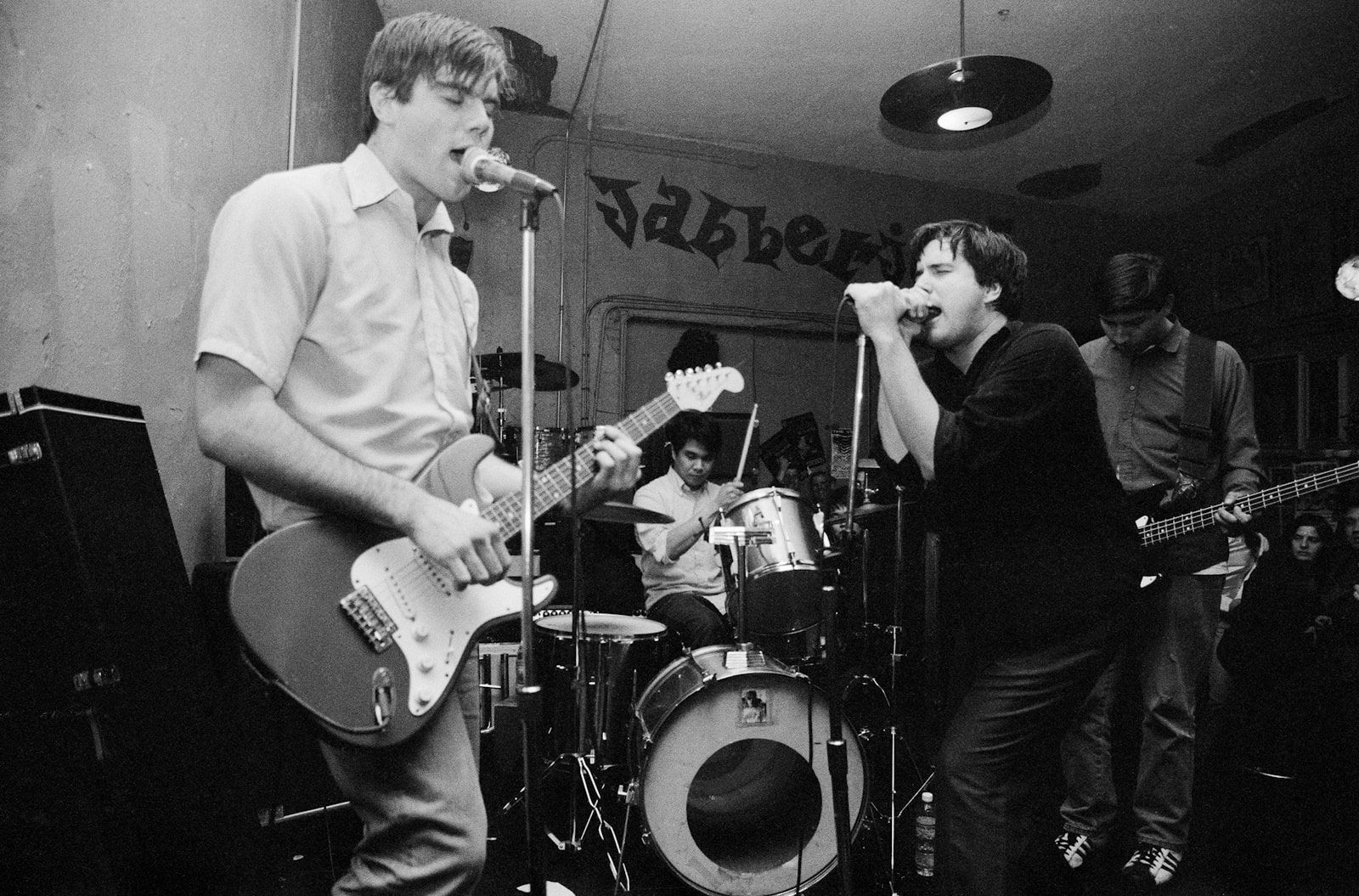As the twilight skies of Norway veil the land, echoing across the fjords and painting an aurora of indigo and obsidian, a symphony arises—a melody interwoven with the palpable texture of the evening. This is not a melody born of the whimsical fluttering of the Northern Lights, nor is it the silent lullaby of the nocturnal Arctic wilderness. This is the sound of Outer Limit Lotus, a tapestry of post-punk and gothic alternative, stirring once again in the mystic cradle of Scandinavian ambience.
Emerging from the ashes of noise rock’s underground demigods, Haust, in 2015, Outer Limit Lotus embraced the darkness bequeathed to them, choosing to wield it in an entirely distinct and captivating manner. Shifting their musical syntax from the raw ferocity to a more cerebral coldness, they have been navigating the landscapes of profound despair and feverish curiosity.
What began as a foray into the visceral expanse of deathrock and icy post-punk has now morphed into a sui generis expression—one that invites us into a universe where desperate ballads converse with soothing melodies, where the shadowy corners are met with a daring playfulness, a beautiful melancholy, an open invitation to the masses to partake in this symphony of the night.
Returning with their new album, ‘Dazzling Darkness‘, Outer Limit Lotus embarks on a fresh journey. Influenced by the auditory prowess of musical architects like The Durutti Column, Christian Death, Bauhaus, The Cure, and Wipers, they curate a unique fusion of the gothic with the punk-rock.
Borrowing inspiration from the likes of Nick Cave & The Bad Seeds for their latest single, ‘Waiting For You’, Outer Limit Lotus masterfully marries the tenets of gothic soundscapes with novel instrumentation.
Each note, each verse, a testament to their alternative punk-rock journey through the ‘Dazzling Darkness‘. In their words, ‘Persona‘ is the last beacon of hope on this record, uttering its mournful hymn from the lips of someone standing on the precipice of oblivion, teetering between the end and a brand new dawn.
Now, as we sit down to talk to Outer Limit Lotus about their newest offering, we delve into the depths of ‘Dazzling Darkness‘.
In our interviewbelow, we touched on the evolution of their unique sound, drawing from their roots in rural Norway and its impact on their themes of alienation, dreams, and social anxiety. We delved into the significant influence of the local Norwegian music scene, their friends, and their previous band experiences. The band discussed their creative process, which took several years and was marked by varied challenges and emotions, and how it was heavily impacted by the COVID-19 pandemic.
We also explored their relationship with their influences, how they integrate them while preserving their original sound, and the inspirations behind their latest tracks. The band also shared their use of gothic lore, dream interpretation, and nature as sources of inspiration. The process of experimenting with various instruments and sound, their collaborations with other artists, and their hope for the reception of ‘Dazzling Darkness‘ were also addressed. They gave insights into their resilience in overcoming personal challenges during the creation of the album, and their vision for the future, including their excitement over the release of upcoming remixes and new material.
‘Dazzling Darkness‘ and ‘Waiting For You‘ are both available to stream now via Sheep Chase Records.
Outer Limit Lotus’s sound has evolved significantly since your formation in 2015. How would you describe the journey that led you from intense deathrock to the unique blend of ice-cold post-punk and dark, playful melodies that characterize your music today?
Our first Ep ‘Cruising the Old World’ was written and recorded in a rush. We had just started the band and didn’t want to follow any specific route, we just wrote what felt natural at the moment. We didn’t really know if we wanted to be a psychedelic garage rock band or an ice-cold goth/death rock band. With the first Album ‘Lotus Eaters’, we went for the latter, took with us what felt right from the first EP, and found our own sound, style and identity. On ‘Dazzling Darkness’ we developed this sound into a mature and experimental post-punk expression that we are now really happy with. When we listen to the old stuff, we can hear that we have traveled far musically, but seen from the inside, it feels like a natural progression, or transformation even.
You mentioned that your location and upbringing in rural Norway played a role in shaping your sound and musical style. How do you believe this unique background has influenced the themes of alienation, dreams, and social anxiety in your music?
In Norwegian we refer to a phenomenon we call “bygdedyret”; “the rural beast”, meaning the gaze and chatter of the other targeting anything and anyone that does not conform to the small community. Growing up in places like that, not feeling part of any community, you see the gaze of the rural beast in the eyes of others all the time, and you have to find a way to build confidence in being different and weird. Constantly dreaming of greener pastures. I think that if you are able to find out what you really like, completely on your own at a young age, you are fit to create something special. A freak super-power you don’t necessarily get access to growing up in a big city.
Can you discuss the impact of the Norwegian music scene on your development as a band? Are there any local artists or venues that have been particularly influential for Outer Limit Lotus?
The music scene, or rather the small group of friends surrounding our former band Haust and its brother-band Okkultokrati has been really important for us. At a young age, playing the music we loved and lived for, and talking shit about music and people we disliked (most of Norwegian music at that time) with our best friends was the best stepping stone we could have for Outer Limit Lotus. Venues like Revolver, Last Train and Blå in Oslo have always been supportive and gave us a stage when we did not have a big audience. We have been very influenced by the Black Metal scene from Notodden and Akkerhaugen where Øystein and Vebjørn grew up. Bands and artists like Emperor, Mortiis and Ildjarn showed us the extended possibilities of making uncompromising and weird music. Other direct influences on Outer Limit Lotus that can be mentioned are the Norwegian band Le Corbeau and our good friend the outsider lo-fi maestro André Borgen.
‘Dazzling Darkness’ seems to explore a range of emotions and themes. How has your creative process evolved over time to produce such a multifaceted record?
In the process of making the album, we lived in different cities, and sent each other demos of riffs or almost finished songs that we developed together when we met in short intensive periods in our rehearsal space in Oslo. It took several years for us to make the songs, and during this time we went through a lot of different challenges and emotions. Even though most of the songs on the album are quite dark and gloomy, some of them are also simply about surviving, and about trying to lead a meaningful and hopeful life when it’s quite hard to cope with reality.
You mentioned that the recording process for ‘Dazzling Darkness’ was heavily impacted by the COVID-19 pandemic, leading to a two-year-long studio journey. How do you feel this extended time period influenced the final outcome of the album, and what did you learn from this experience?
We recorded the album in our friends Trond Mjøen and Pål Bredrup’s studio. Because of this we were able to work in a slow tempo and do a lot of recording and overdubs. Because of Covid, we had long breaks in between each session, and Trond, who is a active creative producer on the record, worked a lot on the songs in periods when we couldn’t meet as a group. During these periods we had some distance to the material, and started working on it with fresh ears when we were back. Trond has very much been the fourth member of the band on this recording, and thanks to him we have managed to find the sound and the atmosphere that we were looking for.
Your sound is influenced by musicians like The Durutti Column, Christian Death, Bauhaus, The Cure, and Wipers. How do you balance paying homage to these influences while maintaining your own distinct sound?
When we compose the music, it’s a collective democratic process where we bring in our respective musical baggage. We are not genre-purists, and we are proud of that. We sometimes pay homage to these bands and others (Talk Talk, A-ha, Emperor or even Joe Cocker) in drum patterns or in certain riffs or melodies, but added together it sounds like something that is completely our own. Post Modern Post-Punk maybe?
‘Waiting For You’ is described as a song of resignation, with a sense of quiet comfort in its darkness. Can you share the inspiration behind this track and its place within the broader narrative of ‘Dazzling Darkness’?
Vebjørn: Waiting For You is a love song. It’s about total submission to a partner, or to love itself. I imagine that the character in the song is sacrificing its own needs on behalf of some others, and still has dreams, but keeping them inside. A good friend of mine told me that he was thinking of the “You” in Waiting For You as death itself, and I also quite like that interpretation.
The concept for ‘Dazzling Darkness’ revolves around the ambiguity of darkness and the unknown. Can you discuss how the gothic lore, haunted house movies, dream interpretation, meditation practice, and mountain hiking served as sources of inspiration for this album, and how they contributed to the overall theme?
We are now talking about the lyrical themes, and Vebjørn who writes all the lyrics loves old horror movies, and especially hauntingly beautiful and uncanny movies like The Innocents (1961) and The Woman in Black (1989). During covid we were all hiking a lot. Our music is very dreamy and sometimes even meditative, and using dream interpretation and experience from actual meditation as an inspirational tool for writing the lyrics seemed logical and important to us.
As you’ve experimented with various instruments and sounds, which have been the most challenging or rewarding to incorporate into your music, and how have they shaped the final product? How did you manage to maintain a cohesive sound and vision throughout the album?
Restraint has probably been the most challenging part of the recording process. Forcing yourself to stop when time is an endless resource is very difficult. On the contrary, this has also been the most rewarding part of the process. We have been able to do a lot of things we would never have been able to if we had stuck to the traditional rock band in studio template. We wanted to make a dynamic and multifaceted record, but we definitely feel that the end result is a cohesive collection of songs.
Can you share any memorable moments or collaborations from the recording process?
We collaborated with a lot of great musicians on this release. To record marimba with Ane Marte Holen was a really magical experience, and when she impulsively broke out in experimental witch howls for the song House, it definitely felt like we were doing the right thing. To have the opportunity to record a noisy improvised saxophone solo with Signe Emmelut was also one of those great moments that you know was a once in a lifetime experience.
What are your hopes and expectations for the album’s reception, both within the Norwegian music scene and on an international level?
First and foremost we hope that people take the time to listen to the album. It’s a slow burner, so if you give yourself time and space to actually listen to it, you hopefully get something in return. We hope that this album can reach across genres and helps bring the band into daylight in the relevant areas of the music scene, both at home and internationally.
Given the various challenges you faced during the creation of ‘Dazzling Darkness,’ such as health issues, a childbirth, and several house moves, how did you maintain focus and motivation throughout the recording process? What advice would you give to other bands facing similar challenges?
The fact that we were privileged enough to have this album to keep us busy, both physically and mentally, during a very bleak and uncertain period in history was motivation in itself.
We are a trio. That is both a gift and a curse. It is easier to communicate when you are just 3 people than when you are in bands with a lot of members, but if two people are super busy, it can of course be a little lonely to be the only person that is breathing air into the lungs of the band. What has kept us together, and makes the band work is that we are very open towards each others ideas, and give each other enough space to make it worth the hassle. The most important thing is what sounds good and feels right. Whose idea it was in the first place is not that important.
As a band that has continually evolved and pushed boundaries, what can fans expect from Outer Limit Lotus in the future? Are there any new directions or unexplored territories that you’re excited to venture into?
We’re releasing a couple of remixes from the album in the near future, both of them very different from each other, and definitively very different from the original songs.
We are working on new material and it seems like we have a need to make more energetic music this time around, but only time will tell how this band develops going forward.



